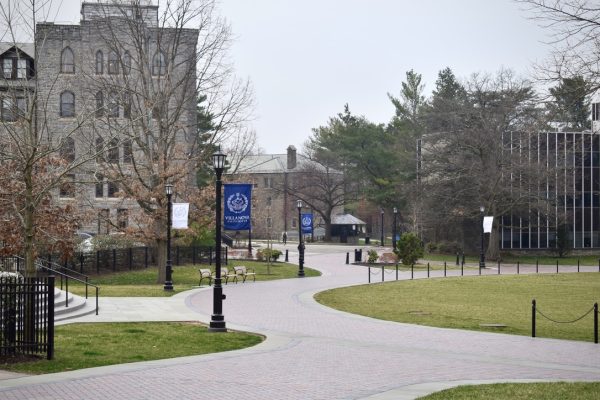Editorial: Less dismissal, more attention

April 19, 2016
In his interview with The Villanovan, Assistant Dean of Students, Nick Tumolo said, “At the end of the day, this is an academic environment of excellence and drugs do not belong in an academic environment.” On the surface, this statement seems reasonable. Do drugs belong in an academic environment? Of course not. An academic environment like that of the University has a reputation to uphold, and illegal substances would only muddy that reputation.
In reality, Tumolo’s statement is an unfair simplification. To glaze over the elements of University life that lead an overwhelming amount of college students to use drugs is short-sighted. With so many college students using drugs today, there are clearly elements present on college campuses that prime students to use drugs—and for administrators of a university, these are elements worth looking into.
There is an academic element—one that is discussed often. We hear of students taking adderall to make their workload feel a little bit lighter and of students smoking weed to unwind after a stressful exam. There is a social element we hear about fairly frequently as well. Peer pressure is a reality.
What we don’t hear about, however, are the emotional and psychological elements attached to typical college experiences that prompt drug use. Loneliness and home-sickness alike are hallmarks of college life. General stress that transcends academic stress, created by a culture of competitiveness, is a common complaint. For some, college is the first time that mental illness manifests itself. This can be especially troubling considering the stigma attached to mental illness today.
In a perfect world, drugs, like Tumolo said, would not belong in an academic environment. But, with the academic, social, emotional and psychological upheaval that most students experience during their time in college, university life at all colleges is practically a breeding ground for drug use.
Among university administrations everywhere, there is a general “zero tolerance” sentiment regarding drugs—in both repercussions and speech. Instead of punishment and direct dismissal, it would be more worthwhile for school administrators to look to the roots of the drug proliferation problem facing most modern campuses. We need fewer University leaders wiping their hands clean of the drug issues on their campus by brushing the issues off with a quick statement. Instead, we need more leaders investigating all of the elements—especially emotional and psychological—that lead so many of their students to use drugs so frequently.





